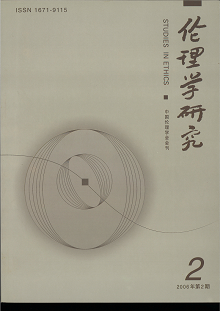|
|
On The Living Meaning of Modern People
CHEN Genfa
2006(2):
20-23.
Life exhibits its fascination by the thought which is the highest form of the rational cognition transcending sensible cognition and can question and create self-consciousness. As the intrinsic power, thought evaluates pursuit. As a form of spirit, the thought increases the spiritual life. The reflection of thought can reflect the grandness or lowness of our lives, and it can also inspire the greatness and infinitude of our souls. Our modern people should live a meaningful life, that is, we should learn to think, learn to question, learn to pursue, and learn to reflect in the new life.
|



